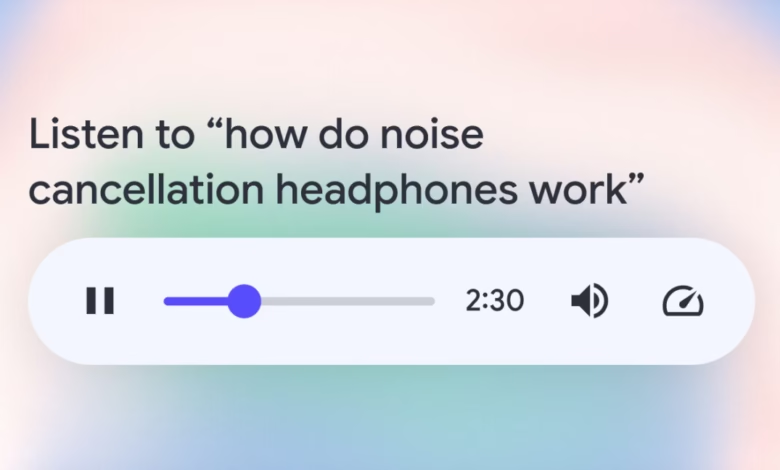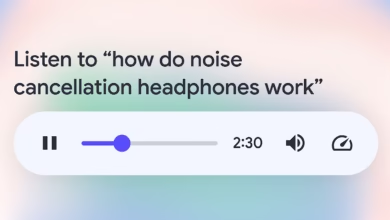Google’s AI Now Creates Podcasts From Your Search Results

▼ Summary
– NotebookLM is Google’s generative AI tool that helps users explore documents and notes using a Gemini AI model.
– Google recently introduced AI-generated “audio overviews” in NotebookLM, simulating fake podcast-style conversations between two AI voices.
– The audio overview feature is currently in testing and available only in Google’s search labs, requiring manual opt-in.
– The audio player appears below the first few search results and includes a source list and playback speed controls.
– Users must click a generate button to create the audio summary, which then provides a conversational recap of search results.
Google is testing an innovative AI feature that transforms search results into conversational podcasts, offering users a new way to consume information without reading. Currently available through Search Labs, this experimental tool generates audio summaries of top results using synthetic voices that mimic a natural discussion between two speakers.
The feature appears below traditional search listings, positioned after the “People also ask” section. Unlike Google’s standard AI Overview snippets, these AI-generated podcasts require manual activation, users must click a button to initiate the audio creation process. Once triggered, the system compiles key details from multiple sources and presents them as a dialogue, complete with adjustable playback speed.
While the voices sound convincingly human, the content remains entirely machine-generated, pulling data from linked websites referenced in the search. Each summary includes source attribution, allowing listeners to verify information or explore further. This approach could benefit multitaskers or those who prefer auditory learning, though it raises questions about how AI might reshape content discovery in the future.
For now, the tool remains opt-in, giving Google valuable feedback before considering a broader release. As with many experimental features, its long-term viability will depend on user engagement and the quality of its synthesized narratives.
(Source: Ars Technica)





